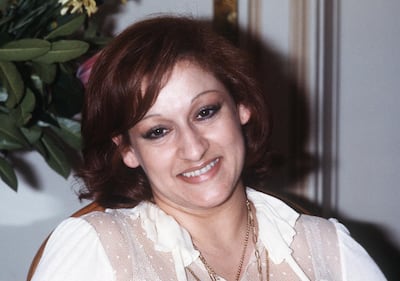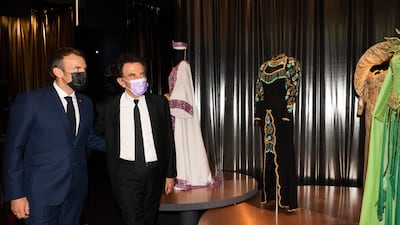French President Emmanuel Macron has paid tribute to the “boundless inspiration and drive” that Arab female singers and actresses offer to society and the widespread campaign for improved women’s rights.
“This is not a fight that came from the other side of the Mediterranean, not a lesson given by others,” he said.
“At a time when religious conservatism was no less present, it came from women who took a political stance and relayed it through their art."
Mr Macron was speaking on a visit to the Arab World Institute in Paris, where he was viewing the exhibition Divas, from Oum Kalthoum to Dalida.
“This story of dignity and equality must to be told again and again,” he said. “I have great admiration for the revolution in Sudan, which happened with hardly a shot being fired. It was led largely by women, by poets.”
“This is what we have done with Yazidi women, Sudanese women, by giving them hospitality in France, by allowing them to study.”
The exhibition, which runs until September 26, is “a unique tribute to the greatest female artistes,” the Institute said.
It charts the lives of, among others, Egyptian actress Soad Hosny, Algerian-Lebanese singer Warda Al-Jazairia and Egyptian singer Laila Mourad.
“Timeless icons, powerful women, symbols worshipped in postwar Arab societies, these divas with exceptional careers have established themselves from Cairo to Beirut, from the Maghreb to Paris, embodying a period of artistic and intellectual effervescence, a new image of women, as well as the national political renewal, which was expressed from the beginning of the 1920s, particularly in Egypt, until the 1970s,” the Arab World Institute said.
“The exhibition thus highlights, through these divas, the social history of Arab women and the birth of feminism within these patriarchal societies, their participation in pan-Arabism and in the struggles for independence in the contexts of colonisation and decolonisation, and above all, their central role in the various artistic fields that they have helped to revolutionise.”



